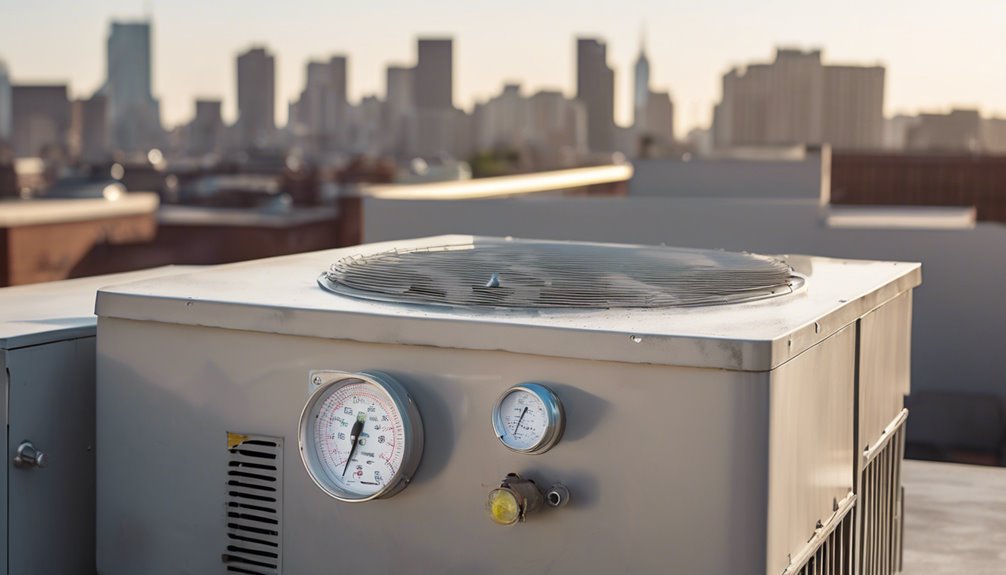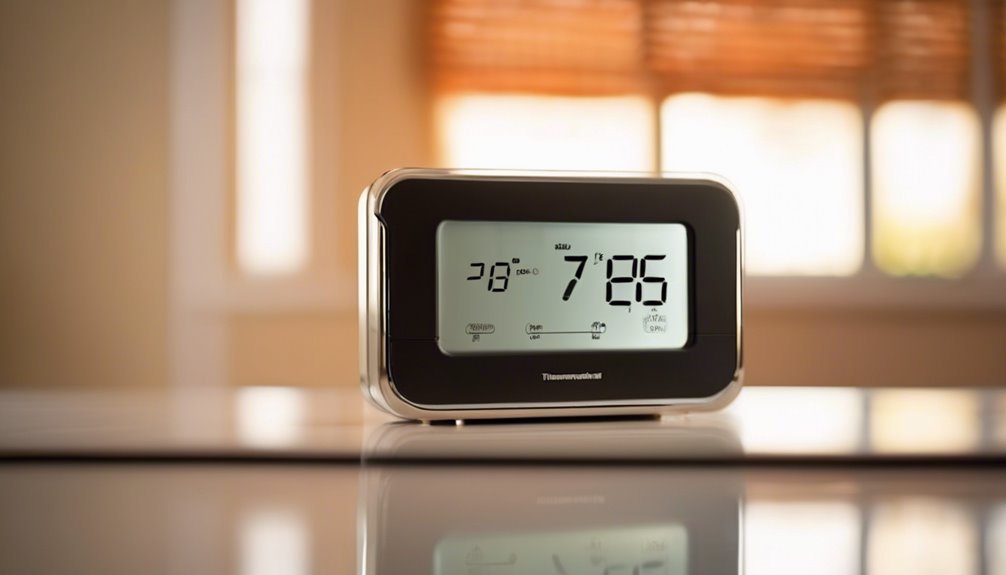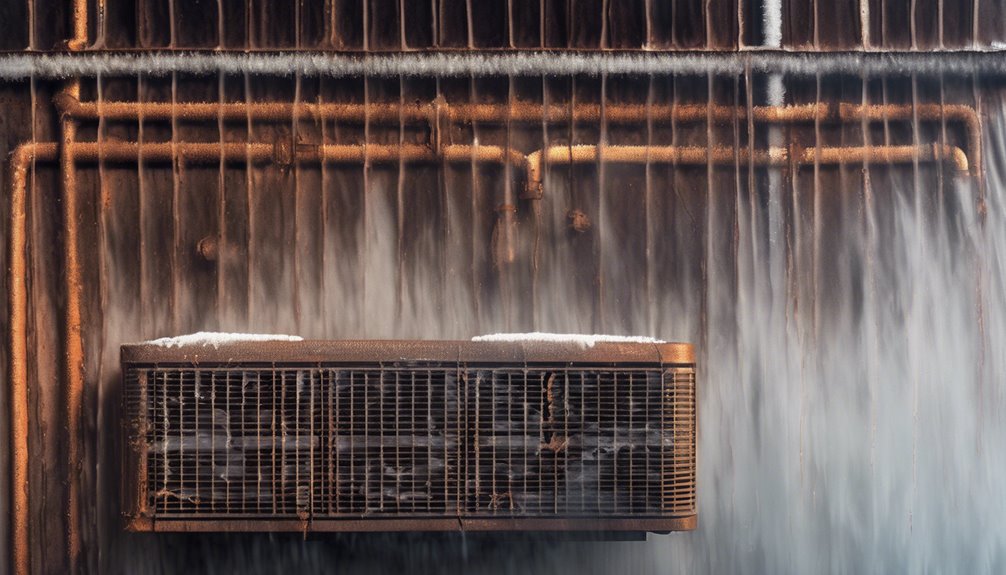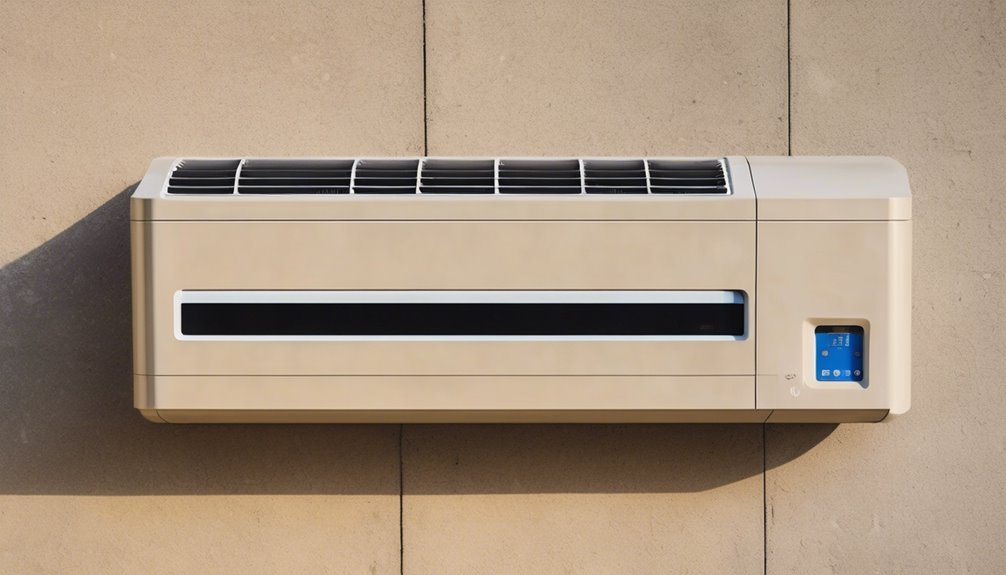Your air conditioner's refill frequency depends on various factors, including the type of AC, usage patterns, and maintenance habits. For instance, central AC systems require more frequent refills due to their larger capacity and higher usage, while split AC systems need less frequent top-ups. Running your AC continuously during peak summer months or using it as a dehumidifier can deplete refrigerant faster. To minimize refills, it's essential to stay on top of maintenance and identify potential issues before they become major problems – and that's just the beginning of optimizing your AC's performance.
Key Takeaways
- The frequency of AC gas refill depends on climate control system efficiency, refrigerant quality, and usage patterns.
- Regular maintenance and leak detection methods can prevent refrigerant depletion and reduce refill needs.
- The type of air conditioner, including split, window, and central AC systems, affects refill frequency and maintenance needs.
- Running AC continuously during peak summer months and high usage patterns increase refrigerant depletion rates and refill frequency.
- Scheduled inspections can help identify potential issues before they cause refrigerant leaks and reduce the need for frequent gas refills.
Factors Affecting AC Gas Refill Frequency
How often do you find yourself refilling the gas in your air conditioner?
The frequency of AC gas refills largely depends on various factors. One crucial aspect is the Climate Control system's efficiency.
If the system isn't well-maintained or is faulty, it can lead to faster refrigerant loss, requiring more frequent refills.
A faulty or poorly maintained system can lead to faster refrigerant loss, necessitating more frequent refills.
Another key factor is the Refrigerant Quality itself.
Low-quality refrigerants can break down quickly, causing the system to leak and necessitating more frequent refills.
Additionally, factors like usage patterns, ambient temperature, and air conditioner age also play a significant role in determining how often you need to refill the gas.
Type of Air Conditioner and Its Impact
When you're considering an AC gas refill, you need to think about the type of air conditioner you have, as it affects the refill process.
You might've a split AC system, which has a separate outdoor unit and indoor unit, or a window AC unit, which is a self-contained unit that fits into a window.
Alternatively, you could have a central AC system, which cools your entire home through a network of ducts.
Split AC Systems
Split AC systems, also known as ductless or mini-split systems, consist of an outdoor unit and an indoor unit connected by a refrigerant line. You'll appreciate the flexibility of these systems, as they can be installed in various locations and are ideal for homes with no ductwork.
| Advantages | Description |
|---|---|
| Low Noise Levels | Split AC systems are generally quieter than traditional ACs, making them perfect for bedrooms or home offices. |
| Customizable System Design | You can choose the number and type of indoor units to suit your specific cooling needs. |
| Energy Efficiency | Split AC systems can be more energy-efficient, as they only cool specific areas of your home. |
Window AC Units
You've explored the benefits of split AC systems, now let's consider another popular option: window AC units.
These compact units are ideal for small to medium-sized rooms, providing efficient cooling without taking up too much space.
However, they do come with some drawbacks. Window AC units are generally noisier than split AC systems, which can be a concern if you're a light sleeper.
Additionally, their power consumption is often higher, which may increase your electricity bill.
On the bright side, they're relatively affordable and easy to install.
When it comes to AC gas refill, window units typically require less frequent refills due to their smaller size and lower cooling capacity.
Central AC Systems
Central AC systems are the most powerful and comprehensive type of air conditioner, capable of cooling entire homes or large commercial spaces.
You'll likely need a central AC system if you have a large space that requires consistent cooling. The system design and installation quality play a crucial role in determining the system's efficiency and performance.
A well-designed system with proper installation can provide optimal cooling while minimizing energy consumption. On the other hand, a poorly installed system can lead to reduced performance, increased energy bills, and even refrigerant leaks.
When it comes to AC gas refills, central AC systems require more frequent refills due to their larger capacity and higher usage.
Usage Patterns and Their Role
Your air conditioner's gas refill needs are closely tied to its usage patterns.
You see, the more you use your AC, the faster the refrigerant gas depletes. This is especially true during seasonal fluctuations when you crank up the AC to combat the scorching heat or freezing cold.
Some usage trends to consider include:
- Running your AC continuously during peak summer months
- Using your AC as a dehumidifier or fan during mild weather
- Installing a smart thermostat to optimize your cooling needs
Detecting Leaks in the AC System
How often do you find yourself wondering why your AC's performance is dwindling, despite regular maintenance?
One common culprit is a refrigerant leak, which can be difficult to detect. That's where leak detection methods come in.
These methods involve using specialized tools to identify areas where refrigerant is escaping. Pressure testing tools, such as leak detectors and pressure gauges, are essential for pinpointing leaks.
By connecting these tools to your AC system, you can identify pressure drops that indicate a leak. This allows you to take targeted action to repair the issue and prevent further refrigerant loss.
Signs of Low Refrigerant Gas Levels
You mightn't notice it at first, but low refrigerant gas levels in your AC can cause your energy bills to skyrocket.
Additionally, you may feel warm air circulating from the vents instead of the cool air you're expecting.
These signs should prompt you to take action and address the issue before it leads to more serious problems.
Increased Energy Bills
Rising energy bills can be a subtle yet telling sign that your air conditioner's refrigerant levels are dwindling.
You mightn't notice it at first, but a steady increase in your energy costs can be a red flag. This is because your AC is working harder to cool your space, resulting in higher costs and decreased energy efficiency.
Some common signs of increased energy bills due to low refrigerant levels include:
- Your energy bills are higher than usual, even when you're using your AC less
- Your AC is running longer than usual to cool your space
- Your energy efficiency is suffering, making your AC work harder to cool your space
Warm Air Circulation
Your air conditioner's vents are supposed to blow refreshing, cool air, but instead, warm air circulation is a telltale sign that something's amiss.
This could be a sign that your AC's refrigerant levels are running low. When your AC doesn't have enough refrigerant, it can't cool the air properly, resulting in warm air flow from the vents.
This can be especially noticeable on hot summer days when you need the cool air the most. If you've noticed your ventilation systems aren't blowing as cold as they used to, it might be time to check your refrigerant levels.
Don't ignore this warning sign, as low refrigerant can lead to more serious problems down the line.
Recommended Refill Intervals for Different ACs
The frequency of AC gas refills largely depends on the type and usage of the air conditioner.
You need to consider factors like refrigerant types, cooling capacity, and usage patterns to determine the optimal refill interval.
- For window ACs and split ACs using R-22 refrigerant, refills are typically needed every 2-3 years, depending on optimal pressures and usage.
- Inverter ACs and those using R-410A refrigerant can go up to 5 years without a refill, thanks to their more efficient design and minimal refrigerant leakage.
- If you have a large commercial or industrial AC system, you may need more frequent refills, potentially every 6-12 months, depending on the system's size and usage patterns.
Preventing Gas Depletion Through Regular Maintenance
Regular tune-ups can significantly extend the time between AC gas refills by preventing refrigerant leaks and ensuring the system operates within optimal pressure ranges.
You can do this by scheduling regular maintenance checks with a licensed technician. During these checks, they'll inspect your AC's components, clean or replace air filters, and ensure proper calibration of the thermostat and other parts.
Scheduled inspections can help identify potential issues before they cause refrigerant leaks, reducing the need for frequent gas refills. By staying on top of maintenance, you'll not only save money on refills but also prolong the lifespan of your AC unit.
Frequently Asked Questions
Can I Refill AC Gas Myself to Save Money?
You're wondering if refilling AC gas yourself will save you money, but consider the DIY risks, like improper handling and leakage, which might outweigh the cost comparison benefits, and potentially lead to more expenses in the long run.
How Much Does It Cost to Refill AC Gas?
You're wondering how much it'll cost to refill your AC gas. The cost depends on factors like the type and amount of refrigerant, labor costs, and location. On average, you can expect to pay between $100 to $300 for a refill.
Can a Dirty Air Filter Affect AC Gas Levels?
You're wondering if a dirty air filter affects AC gas levels. Yeah, it does! A dirty filter reduces filter efficiency, restricting air circulation, which can cause your AC to work harder, potentially leading to low gas levels over time.
Will Refilling AC Gas Improve Its Cooling Performance?
You'll likely notice a boost in cooling efficiency when you refill AC gas, as it restores optimal pressure, allowing your system to work more effectively and efficiently, making your space cooler and more comfortable.
Can I Use a Different Type of Refrigerant Gas in My AC?
You're wondering if you can use a different type of refrigerant gas in your AC. Generally, it's not recommended, as refrigerant compatibility is crucial. Gas conversions can be complex and may void your warranty, so it's best to stick with the original type.
Conclusion
So, you've made it to the end of this article. Now you know the factors that affect how often your AC gas needs a refill. Remember, it's crucial to detect leaks, check for signs of low refrigerant, and follow the recommended refill intervals for your specific AC type. By doing so, you'll prevent gas depletion and ensure your AC runs efficiently. Stay on top of maintenance, and you'll enjoy a cool and comfortable space all year round.



